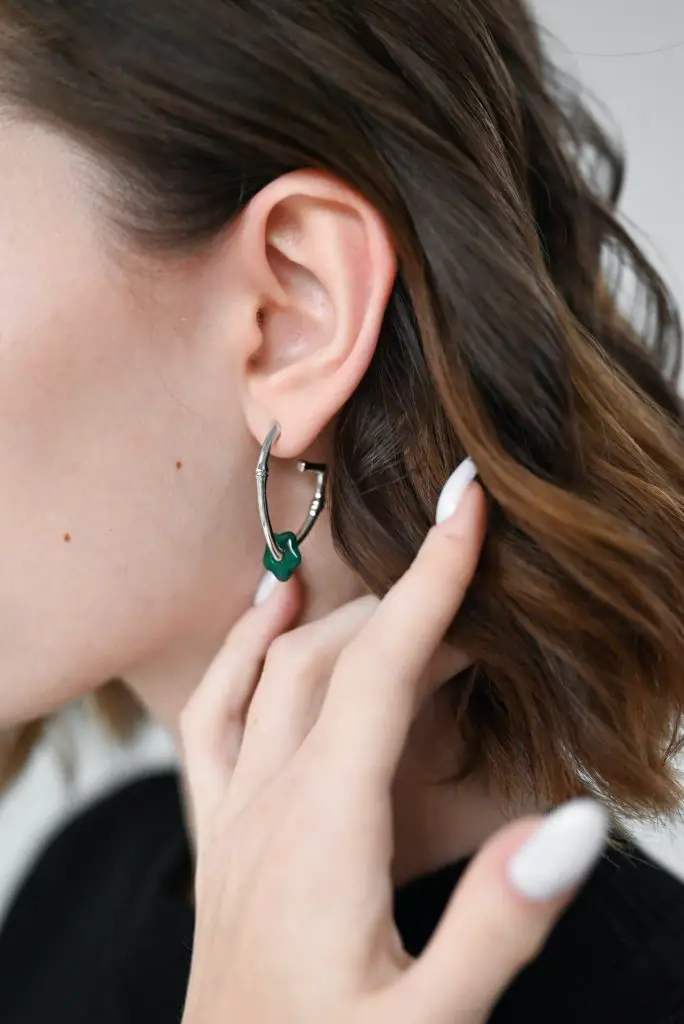Nearly 20% of the population is allergic to nickel. This metal is most commonly used in imitation jewelry especially earrings. This is why it isn’t advised to wear artificial earrings right after getting a piercing. A newly pierced ear is always at more risk of developing an infection. Even if the earring you wear doesn’t have nickel in it, still some other metal could be the root cause of your discomfort i.e cobalt or chromium.
Symptoms of Earring Allergy
If you see the below-mentioned symptoms after getting your ears pierced then it is very much possible that you have a metal allergy:
- Redness or rash on the earlobe
- Constant itching
- Discolored skin
- Prominent dry patch
- Painful blisters
In most cases, the symptoms would appear in the first few hours after getting piercing or changing earrings. In other cases, it could even take a few days, especially if you have just switched to earrings made of some questionable metal. Usually, the infection only occurs to the pierced part of the body but if not treated for long it can also spread to the other parts.
When It Is Important To See A Doctor
It is important to see a doctor as soon as you start noticing the symptoms of allergy. Home remedies and self-medication can result in the infection getting worse due to not being treated at the right time. Some people would still insist on trying out remedies first as infections are extremely common with piercings, in that case, it’s best to not wait for too long. If the severity of infection doesn’t decrease soon then it’s best to seek for professional health.
- Call the doctors if you notice any of these signs after getting a piercing:
- Unending redness at the affected area
- Feeling Hotness
- Feeling feverish
- Pus-filled blisters
- Extreme pain
Always remember to not clean an infection on your own. Medical professionals have the needed experience of treating them properly, if you do it yourself you might end up making it worse.
Who’s More At Risk?
Not everyone is on the same level of developing these allergic reactions. If we talk about genders then women are at greater risk of getting metal allergies than men. It is also possible that if someone in your family has it then you are also likely to have it. People who work with metal a lot are also more prone to getting this allergic reaction.
Treatment Options
If your earring allergy isn’t severe then there are many at-home options available for you to try. Some of the most common treatments are listed below:
- Lotions that help soothe the inflamed skin
- Emollient Creams
- Petroleum Jelly
- Warm compress to help minimize itching
Should You Not Wearing Earrings At All?
If you are noticing the symptoms then you might think about giving up earrings is the only solution but that’s not the case. You might be sensitive to a certain kind of metal and then ignoring that specific metal would solve your problem. Many people also use ear cuffs instead of the earring, it completes the look without having you piercing the ear.


